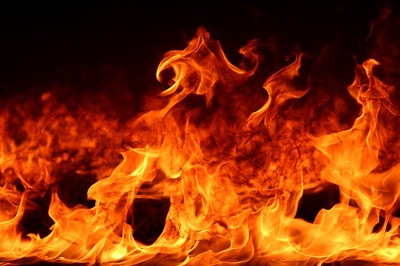Wisconsin Will Feel the Effects of Extreme Heat
Friday, August 19th, 2022 -- 8:01 AM

(By Leah Treidler, Wisconsin Public Radio) In the coming decades, the climate in the U.S. will heat up to potentially disastrous levels, and while Wisconsin’s long winters will turn milder, summer temperatures will hit record highs, according to Leah Treidler with the Wisconsin Public Radio.
That’s according to a new study from the nonprofit research group First Street Foundation focusing on extreme heat events nationwide. Jeremy Porter, chief research officer of the Foundation, said climate scientists often warn temperatures will rise a few degrees on average in the coming decades, and to many, that doesn’t sound like much.
But he said it spells out catastrophic heat. "Today, about 7 million people are at risk of potentially hitting 125 degree heat index," he said. "And in 30 years, that number is going to rise to over 100 million people that are at that same risk. So you can see not only are the average temperatures changing, but the exposure to extreme heat events is also changing."
At those temperatures, the study said, railroad tracks will become wavy, airport tarmacs will melt and the joints in bridges will swell to unsafe levels. Energy grids aren’t built to sustain the number of people who’ll be cranking up the air conditioning, Porter said, which could lead to blackouts.
He also said emergency infrastructure isn’t set up to handle the coming heat waves. While lowering greenhouse gas emissions is still the long term goal, Porter said cities and states need to prepare for the inevitable.
"We're almost locked in over that time period to what the environment is going to look like in 30 years," he said. "Anything we do now is going to be to offset additional changes beyond that time period."
Temperatures in Wisconsin won’t match the extreme highs of states farther south, but Steve Vavrus, a senior scientist at the University of Wisconsin-Madison Nelson Institute's Center for Climatic Research, said the consequences will likely be worse.
"The places that have the greatest mortality during heat waves are not the hottest places," he said. "It's not Arizona and Louisiana that have the most heat-related deaths. It's places that are not accustomed to it, that don't have the infrastructure."
Cities and towns in Wisconsin aren’t built to withstand extreme heat, he said, and people here aren’t used to living in dangerously high temperatures. Not everyone has access to air conditioning, and bigger cities like Milwaukee don’t have enough tree cover and vegetation, creating urban heat islands, he added.
The state needs to build up its infrastructure to deal with the changing climate, he said. Older and socially isolated people are more at risk, he said. So are people of color and those in low-income areas, who he said are more likely to live in urban heat islands, work outdoor jobs, and people who live in certain parts of the state.
Feel free to contact us with questions and/or comments.




